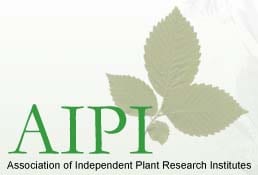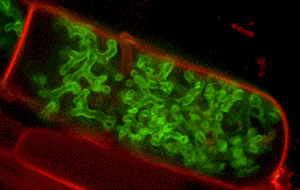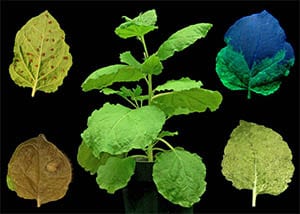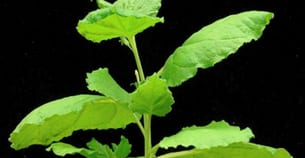Sugar Could Be a Sweet Way to Control Insect Pests
BTI Scientist Georg Jander to work with Cornell University’s Angela Douglas to study the effects of sugar on insects, to control pests on plants.
André Velasquez Receives Prestigious McClintock Award
This award honors the late Barbara McClintock, who won the Nobel Prize for work that she began as a postdoctoral plant geneticist at Cornell in the 1920s.
African Sweet Potato Devastation: BTI Research to Expand Understanding of Viruses
An international team of scientists lead by Dr. Fei at the Boyce Thompson Institute for Plant Research received a $700,000 grant for research that will expand our understanding of viruses that cause devastating losses of sweet potato crops in Africa.
AIPI Announces First Round of Collaborative Grant Awards
In 2010, the four largest nonprofit plant science research institutions in the United States came together to form the Association of Independent Plant Research Institutes (AIPI).
Polar Localization of a Symbiosis-Specific Phosphate Transporter Mediator Found
Most flowering plants form symbiotic associations with soil fungi to gain additional access to phosphate from the soil.
Draft Genome Sequence for Nicotiana benthamiana Released in 2012
Scientists at the Boyce Thompson Institute for Plant Research (BTI) released a draft sequence of the Nicotiana benthamiana genome which is accessible through the SGN BLAST tool and can be downloaded from an ftp site (see: http://solgenomics.net/). The project was...
Draft Genome Sequence for <i>Nicotiana benthamiana</i> Released in 2012
Scientists at the Boyce Thompson Institute for Plant Research (BTI) released a draft sequence of the Nicotiana benthamiana genome which is accessible through the SGN BLAST tool and can be downloaded from an ftp site.
Release of a Draft Genome Sequence for Nicotiana benthamiana
BTI scientists have released a draft sequence of the Nicotiana benthamiana genome.
Release of a Draft Genome Sequence for <i>Nicotiana benthamiana</i>
BTI scientists have released a draft sequence of the Nicotiana benthamiana genome.
Worms Communicate Using a Complex Chemical Language
Scientists have discovered that a species of small, transparent roundworms called Caenorhabditis elegans possess a highly-evolved language in which they combine chemical fragments to create precise molecular messages.









